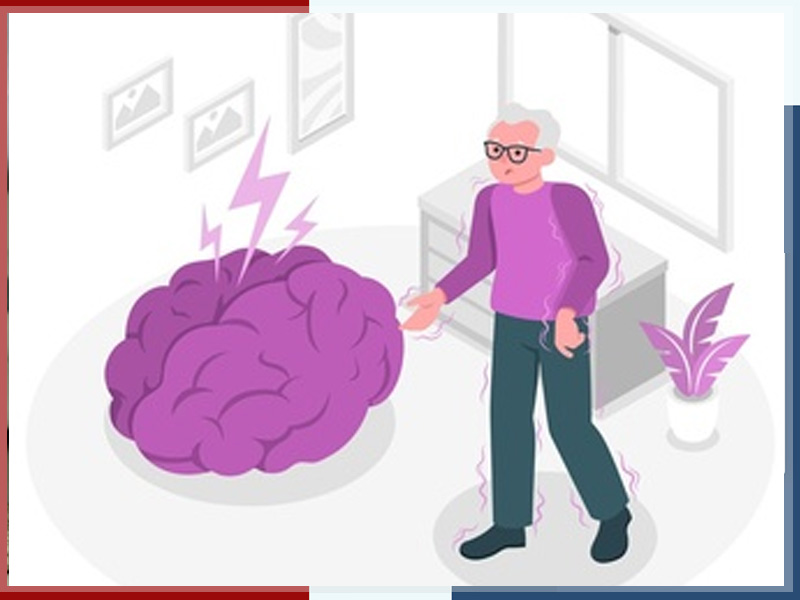
About 0.58 million people in India are living with Parkinson’s disease, according to a 2016 estimate. Although not as prevalent as other serious health issues, such as cardiovascular diseases, diabetes, and hypertension, this degenerative disorder of the central nervous system can affect a person massively, chiefly his/her motor functions. But what is the cause behind this degenerative disorder? To get an answer to this question, Onlymyhealth spoke to Dr. NK Venkataramana, Founder Chairman & Director of Neurosciences, Brains Hospitals, Bangalore.
Table of Content:-
Dr. Venkataramana defines Parkinson’s disease as “a movement disorder” in which “all the movement of the body gets affected.” This happens due to a deficiency of a neurotransmitter called dopamine, which is responsible for sending messages between cells. This leads to abnormal movements such as shaking hands, legs, or the head. At times, it also reduces the speed and frequency of all other movements of the body, Dr. Venkataramana said.
Cause(s) For Parkinson’s Disease

(Photo Credit: Freepik)
As already stated, Parkinson’s disease is caused due to dopamine deficiency.
- “Parkinson’s disease is caused due to reduction of dopamine production in the segmented cells of the brain called Substantia Nigra,” said Dr. Venkataramana.
- The cells in the Substantia Nigra undergo degeneration and progressive cell loss due to the accumulation of a protein called Alpha Synuclein.
- As a result, cells disintegrate eventually leading to dopamine deficiency and finally, the entire dopaminergic system along with other networks start degenerating.
- The process of degeneration once starts continues to progress eventually making an individual disabled, the doctor said.
Although we know that dopamine deficiency leads to Parkinson’s disease. However, the “exact cause is not very clear,” the doctor said. Several mechanisms have been attributed.
- Firstly, it’s a natural process of degeneration as it occurs in 1-2% of the population after the age of 60 years.
- Secondly, environmental factors also play a role.
- Repetitive head trauma can also lead to it.
- Also, recently PARKIN genes have been identified that can alter the metabolism and induce Parkinson's Disease at a very early age (young onset of Parkinson's Disease).
- Autoimmunity can be another reason.
- Next, epigenetic factors also play a role.
- It has been attributed that certain infections or toxins that are generated can travel to the brain either from the intestine or through the nose and gradually induce the disease over a few years, Dr. Venkataramana explained.
Also read: MRI Scan Can Detect and Treat Tremors Caused Due To Parkinson’s Disease
Symptoms Of Parkinson’s Disease

(Photo Credit: Freepik)
Those suffering from Parkinson’s disease experience the following symptoms:
- Spontaneous shaking of hands and legs (tremors)
- Tightness of the body (rigidity)
- The slowness of the movement
- Loss of facial expression
As the disease progresses,
- Handwriting can change into small letters
- Associated movement of hands and legs disappear
- The body assumes a sleeping posture and the gait changes
As the disease progresses, the patient can also experience a range of non-motor symptoms, such as:
- Loss of smell
- Constipation
- Disturbed sleep
- Sexual dysfunction
- Autonomic dysfunction
- Memory disturbances
- Psychological and behaviourial disturbances including hallucination
Also read: Coffee Can Help Tame Parkinson’s Symptoms
What Are Parkinson’s Disease’s Risk Factors?
The risk factors of Parkinson’s disease are primarily those that affect the supply of blood to the brain such as:
- Repeated head injuries
- Environmental toxins
- Use of some kinds of drugs
- Excessive alcoholism
These factors are known to induce or precipitate Parkinson's Disease.
When You Should See A Doctor
You should see a doctor as soon as the initial symptoms appear. Early symptoms include:
- Altered smell
- Constipation
- The slowness of the movement
Once symptoms appear, early diagnosis is crucial to slow down the degeneration process.
Treatment For Parkinson’s Disease
Parkinson’s disease can affect a person’s life considerably. Hence, treatment primarily focuses on maintaining and enhancing the quality of life particularly in younger individuals. The secondary goal is to retard the progression. Hence, treatment includes:
- Lifestyle modification
- Control of risk factors
- Medicines that enhance the production of dopamine initially and later direct replacement of dopamine.
Dr. Venkataramana said that “medicine plays a crucial role in balancing the dosage and quality of life and to manage the complications of the disease.” Although it usually progresses slowly, over 5-7 years Parkinson’s disease might warrant surgical treatment to complement the medicine.
When it comes to diseases, prevention is always better than cure. Hence, have a healthy lifestyle, quit smoking and alcohol, avoid drugs, and exercise regularly. These steps will ensure that you steer clear of Parkinson’s disease.
(With inputs from Dr. NK Venkataramana, Founder Chairman & Director Neurosciences, Brains Hospitals, Bangalore)
Photo Credit: Freepik
Also watch this video
How we keep this article up to date:
We work with experts and keep a close eye on the latest in health and wellness. Whenever there is a new research or helpful information, we update our articles with accurate and useful advice.
Current Version